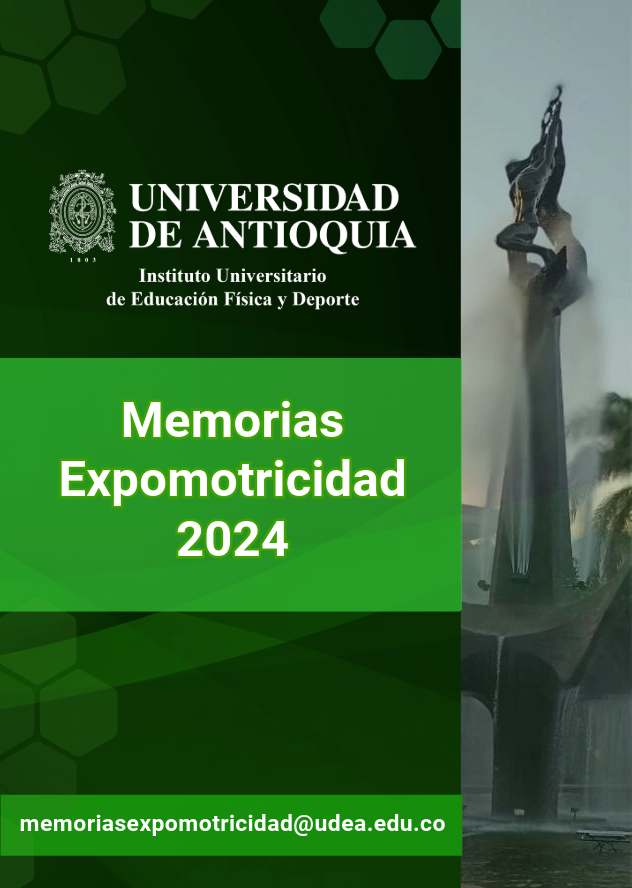Configuration and change in the identity and imaginaries of physical education students
Keywords:
teacher training, sports identity, students’ imaginaries, vocational orientation, sociology of experience, subjectivity in educationAbstract
Teacher training requires a review of the subjective processes of the students, since training does not consist of a simple transfer of information, but depends on the connections, experiences and biographies that precede and accompany the passage through the institution. Therefore, it is necessary to describe the prevailing logics in the institutions that support the decisions of those who decide to enroll, to be able to observe the development of the subjectivity from which the students' ideas, imaginaries and values about the career and the profession are shaped, mainly during their school experience and in the context of sport internships. The purpose of this work was to distinguish the genetic processes of imaginaries about the career and profession of those who choose to enroll in physical education at the ‘Instituto Superior de Educación Física’ in La Pampa, Argentina. The study was a combination of quantitative and qualitative techniques, focusing on individuals, formative devices, and the production of data through the stories of first-year students. Surveys were analyzed and compared with individual interviews, focus groups, and texts written by students. The main dimensions of the research were reasons for career choice and expectations regarding education and career. In sports, students' imaginaries are defined as an important element in school, so educational institutions must take into account the subjectivity of the students they enroll in order to design devices that allow them to question their initial imaginaries.
Downloads
References
1. Acosta, F., Boigues, A., Pizarro D., Sánchez, F., y Suárez Vranquen, C. (2018). Cultura experiencial estudiantil y formación inicial en educación física. Aportes para su análisis. En W. Bracht, I. Wenetz, y U. R. Almeida (Orgs.), A Educação Física Escolar na América do Sul: Entre a Inovação e o Abandono/Desinvestimento Pedagógico (pp. 133-152). CRV Editora.
2. Birgin, A., y Braslavsky, C. (1992). Formación de profesores, impacto, pasado y presente. Miño y Dávila.
3. Bourdieu, P. (1990). Sociología y cultura. Grijalbo.
4. Cachorro, G., Scarnatto, M., Cesaro, R., Díaz Larrañaga, N., y Villagrán, J. P. (2009). Educación Física: cultura escolar y cultura universitaria. UNLP. https://libros.unlp.edu.ar/index.php/unlp/catalog/book/617
5. Devalle de Rendo, A. (2009). La formación docente. Según las representaciones de los futuros maestros. Lugar Editorial.
6. Dubet, F., y Martuccelli, D. (1998). En la escuela. Sociología de la experiencia escolar. Losada.
7. Korinfeld, D. (2014). Instituciones suficientemente subjetivizadas. En J. A. Castorina (Org.), Actas de las Jornadas Sociedades Contemporáneas, Subjetividad y Educación (pp. 1-15). FiloUBA. http://eventosacademicos.filo.uba.ar/index.php/SCSE/II-2014/paper/viewFile/1953/752
8. Lahire, B. (2006). El espíritu sociológico. Manantial.
9. Pérez Gómez, A. I. (1999). La cultura escolar en la sociedad neoliberal. Morata.
10. Pulido Quintero, S., Bores Calle, N., y Moreno Doña, A. (2009). Investigando la identidad deportiva de los estudiantes de Educación Física, el proceso de construcción y la influencia en los programas de formación inicial. Expomotricidad, (2009). https://revistas.udea.edu.co/index.php/expomotricidad/article/view/332075
11. Rozengardt, R. (2020). El profesor de Educación Física, entre la escuela y la formación docente [Tesis doctoral, Universidad Nacional de La Plata]. http://sedici.unlp.edu.ar/handle/10915/99380
Downloads
Published
How to Cite
Issue
Section
License
Copyright (c) 2024 Rodolfo Rozengardt

This work is licensed under a Creative Commons Attribution-NonCommercial-ShareAlike 4.0 International License.




